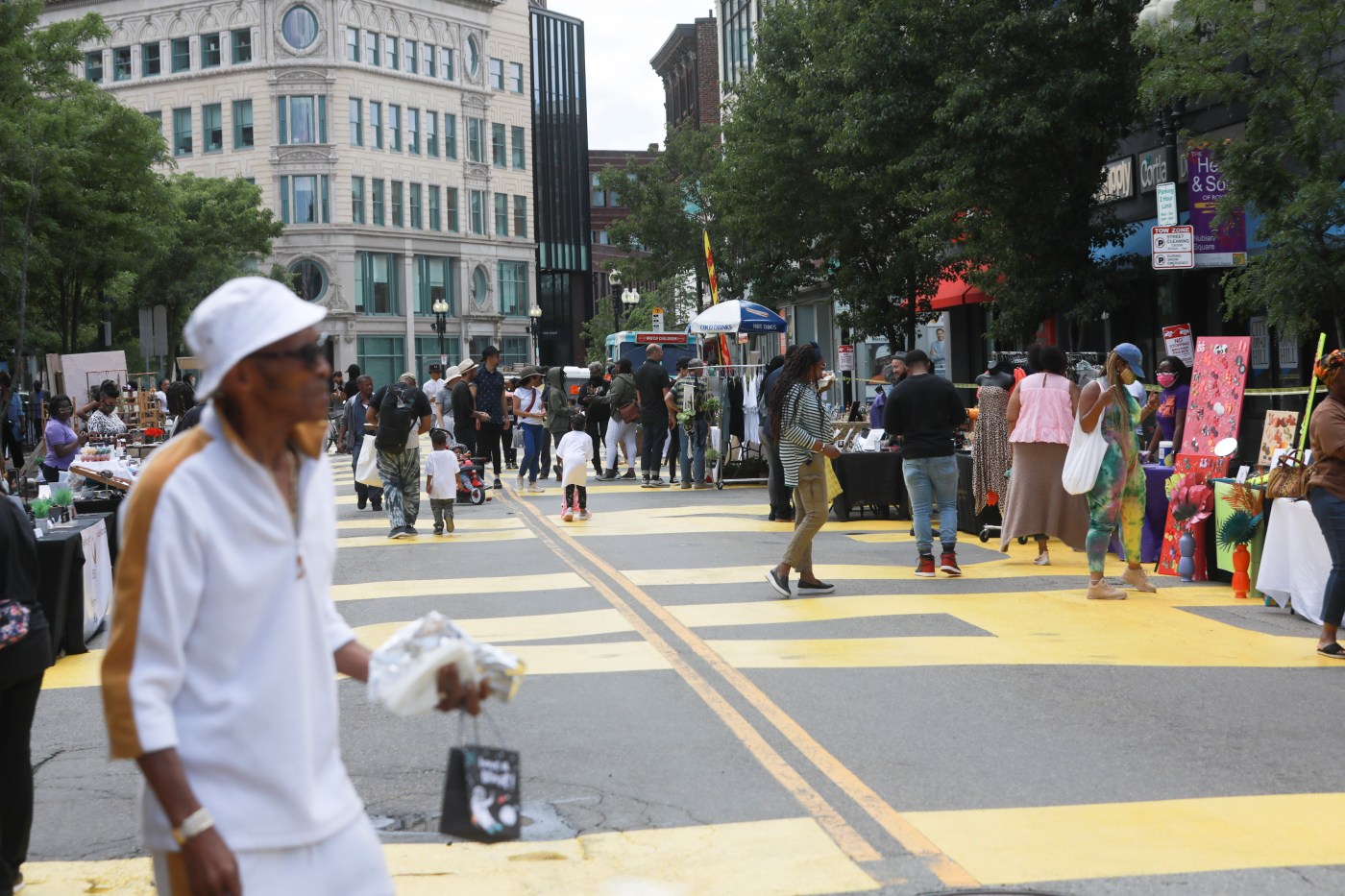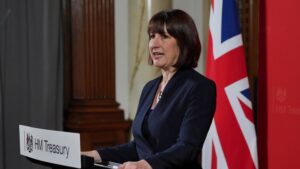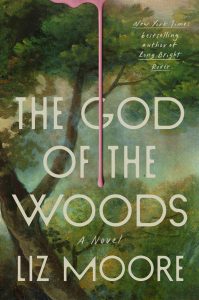
Gaskin: Envisioning a modern Black Wall Street
Athletes such as Muhammad Ali, Tommy Smith and Colin Kaepernick have used their platform to advance political causes. As we talk about self-determination and closing the racial wealth gap, what would it mean for today’s millionaires and billionaires such as Michael Jordan, Lebron James, Magic Johnson, Tyler Perry, Oprah Winfrey, Jay-Z, Robert Smith, David Steward, Rihanna, among others to use their money, power and influence to create modern Black Wall Streets across America?
Jaylen Brown of the Boston Celtics is one of the first to have brought up the idea of creating a modern-day Black Wall Street. What would that look like? The Black Wall Street in Tulsa Oklahoma’s Greenwood District was one of the most prosperous African American communities in the United States. America had over 100 such communities and many more Freedom Colonies. There are enough resources in the Black community for the manifestation of a Black Wall Street. A modern day Black Wall Street would probably be a hybrid of a physical site and a virtual one.
Now is the ideal time to brainstorm and envision what physical and virtual Black Wall Streets would look like. We have more resources and are in a much better position than our ancestors who built the prior wall streets. With a vision, we can do it and although not necessary, our allies will join us.
According to a presentation by Katz Multicultural, Black American buying power has increased 48% from 2010 to 2019, with an estimated growth to $1.8 trillion by 2024. According to Nicole Kenney, an NAACP economic program specialist, only 2 cents of every dollar an African American spends in this country goes to Black-owned businesses. Jeffrey L. Boney wrote an article in 2014 titled, “From Black Wall Street to the Black Dollar Project.” He reports that the Black dollar stays in the Black community for less than six hours. Maggie Anderson’s book, “Our Black Year: One Family’s Quest to Buy Black in America’s Racially Divided Economy” explains how difficult it is to buy Black.
Some believe the creation of a Black Wall Street or streets is the solution. Every community over a certain size should commit to having its own Black Wall Street. In the local communities, there would be hair care, bars, restaurants, and other types of goods and services that cater to Black audiences. These might be business districts that consisted of business condos or co-ops where the business would not have to fear being displaced because of rising rents and gentrification. Business directories and the local Black business scene would be for people to spend as much of their dollars with Black-owned businesses
In a tech world, a Black Wall Street might look like buildings of incubators, accelerators and shared workspaces creating the STEM-based business of the future in tech, life sciences, clean tech and built by knowledge workers in advanced manufacturing plants earning six figure salaries – typical for chip manufacturers.
A Black Wall Street would provide education, mentorship, and the pathway to turn an idea, invention, hobby, side hustle or gig work into a business or franchise. Many people have gone from a hobby to flea market to kiosk(s) to storefront(s) or online business to scale.
Since health is wealth, a Black Wall Street would offer fresh produce, healthy eating options, opportunities for exercise and relaxation such as prayer, meditation, and yoga, and access to primary care.
Black wealth would need to include Black experiences in all aspects of the arts, from our children learning everything from the viola to common African instruments to professional ballet dancers. Black public art would thrive, as well as galleries exhibiting emerging and established talents.
There would be the ability to learn about Black history and not have to be apologetic about it.
A Black Wall Street(s) would have to address the barrier of access to capital which has plagued Black businesses since slavery. Black asset management firms manage only 1.1% of the total $71.4 trillion in assets. Less than 1% of all venture dollars go to startups founded by Black entrepreneurs. As long as there is discrimination in the credit process, there will be the need for a banks. However, a modern Black Wall Street would have to go beyond Black banks and insurance companies, and include opportunities in every asset class from crowdsourcing, private equity, and venture capital to REITS. There are already well-known examples such as Jay-Z and Serena Williams who have venture funds with missions to help Blacks.
In the history of Black thought from Marcus Garvey to Booker T. Washington to Malcolm X, to President Barack Obama, there are consistent themes of Black empowerment and self-efficacy, Black excellence, and Black pride. A Black Wall Street would be a manifestation of those themes and the principles of Kwanzaa brought to life. Black Jews, Christians, Muslims, and others have their faith traditions from which to draw principles and values for a successful, joyous life and not just a wealthy one.
A virtual “Black Wall Street” could encompass several key elements:
Economic Empowerment Platforms: Online platforms designed to support Black-owned businesses by providing resources such as funding opportunities, mentorship programs, and access to markets.
Digital Marketplace: A centralized digital marketplace specifically for Black entrepreneurs to showcase and sell their products and services. This platform could facilitate direct consumer engagement and foster a supportive community, crowd-sourcing opportunities, and would be a marketplace where those who had money to invest could meet those who had investment opportunities.
Educational Resources: Virtual workshops, webinars, and courses tailored to the needs of Black entrepreneurs, covering topics from business planning and marketing to financial literacy and digital skills.
Networking and Collaboration: Virtual networking events and forums where Black business owners can connect, collaborate on projects, share experiences, and support each other’s growth.
Cultural Celebration and Awareness: Incorporating elements of Black culture, history, and identity into the platform to celebrate achievements, promote awareness, and foster a sense of community pride.
Policy and Advocacy: Virtual advocacy initiatives aimed at addressing systemic barriers and advocating for policies that support Black entrepreneurship and economic empowerment.
Investment and Funding: Virtual pitch events, crowdfunding platforms, and investment networks focused on supporting Black businesses, helping them access capital to scale their ventures.
Ed Gaskin is Executive Director of Greater Grove Hall Main Streets and founder of Sunday Celebrations.


